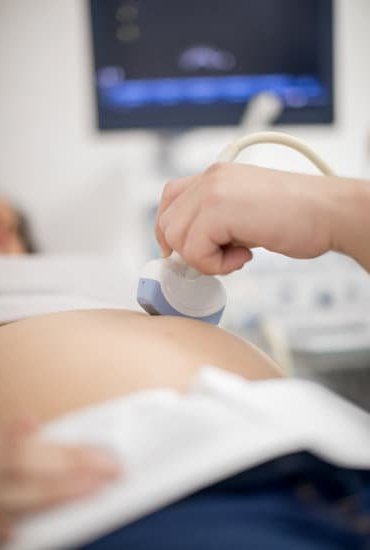Pregnancy is a crucial period for a woman’s health, and maintaining a well-balanced diet is essential for both the mother and the developing baby. Diet and nutrition for pregnancy play a vital role in ensuring a healthy pregnancy, as well as supporting the proper development of the unborn child. It is important for expectant mothers to understand the significance of consuming the right nutrients and making informed food choices during this critical time.
The foods that pregnant women consume can have a significant impact on their overall health and the health of their babies. A nutritious diet not only helps to support the mother’s energy levels and overall well-being but also provides essential nutrients necessary for the baby’s growth and development. With proper guidance on key nutrients, meal planning, managing cravings, and overcoming challenges, expectant mothers can navigate through this exciting yet challenging phase while prioritizing their health.
In this article, we will explore the importance of diet and nutrition during pregnancy, highlight key nutrients necessary for a healthy pregnancy diet, provide guidance on managing morning sickness with nutrition, discuss the role of exercise in maintaining a healthy diet during pregnancy, address supplements that may be beneficial for pregnant women, and offer resources where reliable information on pregnancy nutrition can be found.
By understanding these aspects of diet and nutrition for pregnancy, expectant mothers can make informed decisions that will contribute to a healthier pregnancy journey.
Key Nutrients for a Healthy Pregnancy Diet
During pregnancy, it is essential to focus on consuming key nutrients that support the health and development of both the mother and the baby. A well-rounded, healthy pregnancy diet should include a variety of essential nutrients that are crucial during this time. Some of the key nutrients that expecting mothers should prioritize in their diet include:
Folate
Folate, or folic acid, is a B vitamin that plays a critical role in reducing the risk of neural tube defects in the developing fetus. It is recommended that pregnant women get 600 micrograms of folate daily from foods such as leafy green vegetables, fortified cereals, and legumes.
Iron
Iron is important for producing hemoglobin, which carries oxygen to the body’s cells. During pregnancy, a woman’s blood volume increases to support the growth of the baby, making adequate iron intake crucial. Good sources of iron include lean meats, poultry, fish, and fortified grains.
Calcium
Calcium is necessary for building strong bones and teeth in both the mother and the baby. Pregnant women should aim to get 1,000 milligrams of calcium per day from sources like dairy products, fortified plant-based milks, and leafy green vegetables.
Incorporating these key nutrients into a daily diet can help ensure a healthy pregnancy for both mother and baby. It is important for pregnant women to consult with their healthcare provider to determine their specific nutritional needs during this time.
Foods to Avoid During Pregnancy
During pregnancy, it’s important to be mindful of the foods you consume in order to ensure the health and safety of both you and your baby. Certain foods can carry harmful bacteria, toxins, or other substances that can pose a risk during pregnancy. It’s crucial to be aware of these potential dangers and avoid them for the duration of your pregnancy.
High-Mercury Fish
Fish is generally a healthy choice for a balanced diet, but certain types of fish contain high levels of mercury which can be harmful to the developing nervous system of a fetus. Pregnant women should avoid fish such as shark, swordfish, king mackerel, and tilefish. Instead, opt for low-mercury options like salmon, shrimp, and catfish.
Unpasteurized Dairy Products
Unpasteurized milk and dairy products can contain harmful bacteria such as listeria which can cause complications during pregnancy. Therefore, it is best to steer clear of unpasteurized cheese, milk or any other dairy product in its raw form.
Raw or Undercooked Meat
Raw or undercooked meat may harbor bacteria such as salmonella or E. coli which can lead to food poisoning. Make sure all meat is cooked thoroughly before consumption to minimize the risk of foodborne illness for both you and your baby.
Being mindful of what you eat during pregnancy can significantly impact the health and development of your baby. By avoiding these potentially harmful foods and focusing on a well-balanced diet rich in essential nutrients, you are taking an important step towards ensuring a healthy pregnancy and giving your baby the best possible start in life.
Sample Meal Plan for Pregnant Women
During pregnancy, it is essential for women to consume a well-balanced diet that provides the necessary nutrients for both the mother and the growing baby. A sample meal plan for pregnant women can help ensure that they are getting the right combination of foods to support their health and development. Here is a suggested meal plan for pregnant women to consider:
Sample Meal Plan
- Breakfast: Whole grain toast with avocado and scrambled eggs, a side of Greek yogurt with berries.
- Mid-Morning Snack: A small handful of nuts and a piece of fruit.
- Lunch: Grilled chicken salad with mixed greens, quinoa, and assorted vegetables, served with a vinaigrette dressing.
- Afternoon Snack: Carrot sticks with hummus dip.
In addition to following this sample meal plan, pregnant women should also remember to stay properly hydrated by drinking plenty of water throughout the day. It’s important to consult with a healthcare provider or nutritionist before starting any new diet during pregnancy to ensure it meets individual nutritional needs.
Women who are expecting should aim for a well-rounded diet that covers all essential nutrients required during pregnancy. By incorporating a variety of foods from different food groups such as fruits, vegetables, lean proteins, whole grains, and healthy fats into their daily meals, they can help support their own health as well as the healthy growth and development of the baby.
Tips for Dealing With Pregnancy Cravings
Pregnancy cravings are a common phenomenon experienced by many expectant mothers, and learning how to deal with them is an important part of maintaining a balanced diet and nutrition for pregnancy. Here are some tips for managing pregnancy cravings:
1. Listen to your body: It’s natural to experience cravings during pregnancy, but it’s important to listen to your body and understand what it truly needs. Sometimes, cravings can be a signal that your body is lacking certain nutrients. For example, if you’re craving ice cream, it could be a sign that your body needs more calcium.
2. Incorporate healthier alternatives: Instead of giving in to unhealthy cravings, try incorporating healthier alternatives into your diet. For example, if you’re craving something sweet, opt for fresh fruits or yogurt instead of reaching for sugary snacks.
3. Practice moderation: It’s okay to indulge in your cravings occasionally, but it’s important to practice moderation. If you’re craving something that may not be the healthiest choice, try to satisfy the craving in smaller portions or as an occasional treat.
Remember that it’s normal to experience pregnancy cravings and there’s nothing wrong with indulging in them from time to time. The key is to find a balance between satisfying your cravings and maintaining a healthy diet and nutrition for pregnancy.
How to Manage Morning Sickness With Nutrition
Morning sickness is a common symptom experienced by many pregnant women during the first trimester. While it can be uncomfortable and even debilitating for some, there are ways to manage morning sickness with nutrition. One of the most important things to remember is to keep food in your stomach at all times, even if it means eating smaller, more frequent meals throughout the day.
Ginger has been found to be effective in reducing nausea, so incorporating ginger into your diet can help alleviate symptoms of morning sickness. This can be done by drinking ginger tea, adding fresh ginger to recipes, or taking ginger supplements. Avoiding spicy and greasy foods is also recommended as these can exacerbate feelings of nausea.
It’s important to stay hydrated, especially when experiencing morning sickness. Sipping on clear liquids like water, herbal teas, or electrolyte drinks can help prevent dehydration. Some women find that sucking on ice chips or popsicles can also provide relief from nausea. Overall, maintaining a balanced and nutritious diet during pregnancy can help manage morning sickness and ensure the health of both the mother and the baby.
| Managing Morning Sickness | Nutrition Tips |
|---|---|
| Keep food in your stomach at all times | Eat smaller, more frequent meals throughout the day |
| Incorporate ginger into your diet | Drink ginger tea or take supplements |
| Avoid spicy and greasy foods | These can exacerbate feelings of nausea |
The Role of Exercise in a Healthy Pregnancy Diet
Exercise is an important component of a healthy pregnancy diet. Staying physically active during pregnancy can provide numerous benefits for both the mother and the baby. It can help reduce the risk of gestational diabetes, preeclampsia, and excessive weight gain. Additionally, regular exercise can help improve mood, promote better sleep, and increase overall energy levels during pregnancy.
It is important for pregnant women to engage in exercises that are safe and appropriate for their stage of pregnancy. Low-impact activities such as walking, swimming, prenatal yoga, and stationary cycling are often recommended. These types of exercises are gentle on the joints and can be easily modified as the pregnancy progresses.
Incorporating regular exercise into a pregnant woman’s routine should be done in consultation with her healthcare provider. They can provide guidance on how to exercise safely during pregnancy while taking into consideration any existing health conditions or complications.
| Benefit | Recommendation |
|---|---|
| Reduces risk of gestational diabetes | Engage in low-impact activities such as walking or prenatal yoga |
| Promotes better sleep | Consult with healthcare provider for safe exercise recommendations |
| Increases overall energy levels during pregnancy | Avoid high-impact activities and opt for gentle exercises like swimming |
Supplements for Pregnant Women
During pregnancy, it is important for women to ensure they are getting all the necessary nutrients to support their own health and the development of their growing baby. While a healthy, balanced diet is the best way to obtain these nutrients, many healthcare providers recommend certain supplements to fill in any potential gaps.
Prenatal vitamins are often recommended as they contain essential nutrients such as folic acid, iron, and calcium that may be lacking in a woman’s regular diet. These supplements can help ensure that both the mother and the developing fetus are receiving all the necessary nutrients for a healthy pregnancy.
In addition to prenatal vitamins, omega-3 fatty acids are also commonly recommended for pregnant women. These essential fatty acids play a crucial role in fetal brain and eye development. DHA, a type of omega-3 fatty acid, is particularly important during pregnancy and breastfeeding.
Many pregnant women may not get enough omega-3s in their diet, so adding a supplement can be beneficial. However, it’s important to consult with a healthcare provider before adding any new supplements to one’s routine during pregnancy.
It’s important for pregnant women to remember that while supplements can help fill in nutritional gaps, they should not replace a healthy diet. A varied and well-balanced diet remains the best way to ensure that both mom and baby are getting all the necessary nutrients for a healthy pregnancy.
Supplements should always be used in conjunction with a nutritious diet, rather than as a substitute for whole foods. Therefore, it is vital for pregnant women to seek guidance from their healthcare provider or registered dietitian when considering which supplements may be appropriate for them during pregnancy.
Overcoming Challenges in Maintaining a Healthy Pregnancy Diet
Maintaining a healthy pregnancy diet can be challenging, especially with the changes that your body is going through. However, there are ways to overcome these challenges and ensure that you are providing the essential nutrients for both you and your baby. One of the biggest challenges is managing food aversions and cravings.
It’s common for pregnant women to experience strong aversions to certain foods, even ones they used to enjoy. On the other hand, pregnancy cravings can lead to consuming unhealthy foods in excess. It’s important to find a balance by incorporating healthier alternatives for the foods you are averse to and indulging in moderation for your cravings.
Another challenge in maintaining a healthy pregnancy diet is dealing with nausea and vomiting, often referred to as morning sickness. This can make it difficult to keep down certain foods or even feel like eating at all.
To manage morning sickness with nutrition, try eating smaller, more frequent meals throughout the day instead of three large meals. Ginger has been found to be effective in reducing nausea, so including ginger tea or ginger candies in your diet may help alleviate symptoms.
Finding time and energy to prepare nutritious meals can also be a hurdle during pregnancy, especially if you’re working or taking care of other children. To overcome this challenge, consider meal prepping on days when you have more energy or enlisting the help of family members or friends for meal preparation.
Additionally, making use of convenience items such as pre-cut fruits and vegetables or pre-cooked grains can make it easier to put together a healthy meal without much effort. By addressing these challenges head-on and making small adjustments where needed, it is possible for pregnant women to successfully maintain a healthy diet throughout their pregnancy journey.
Resources for Finding Reliable Pregnancy Nutrition Information
In conclusion, maintaining a healthy diet and nutrition during pregnancy is crucial for the health of both the mother and the baby. The right balance of nutrients can help reduce the risk of complications, support the development of the baby, and aid in a smoother pregnancy and delivery.
Key nutrients such as folic acid, iron, calcium, and omega-3 fatty acids are essential for fetal growth and development, making it important for pregnant women to focus on consuming these nutrients through their diet or supplements.
While it’s important to focus on what to eat during pregnancy, it’s equally vital to be mindful of foods to avoid. Certain foods like unpasteurized cheese, raw fish, deli meats, and excessive caffeine should be limited or eliminated from a pregnant woman’s diet to prevent foodborne illnesses or potential harm to the developing fetus. Making informed decisions about food choices is an integral part of maintaining a healthy diet during pregnancy.
In addition to following a well-rounded meal plan tailored for pregnancy, managing cravings and morning sickness can also pose challenges for many expectant mothers. By incorporating small, frequent meals rich in protein and complex carbohydrates into their diet, staying hydrated, and incorporating light exercise when possible, women can better manage these common discomforts during pregnancy.
Ultimately, seeking reliable resources for pregnancy nutrition information is essential for ensuring that pregnant women have access to accurate and up-to-date guidance throughout their journey towards motherhood. With so many considerations regarding diet and nutrition for pregnancy, finding reliable sources of information can provide clarity and support as expectant mothers prioritize the health of themselves and their developing babies.
Frequently Asked Questions
What Is the Best Diet for a Pregnant Woman?
The best diet for a pregnant woman is one that includes a variety of nutrient-rich foods, such as fruits, vegetables, lean proteins, whole grains, and healthy fats. It’s important to focus on getting enough folic acid, iron, calcium, and protein to support the healthy growth and development of the baby.
What Are the Nutritional Requirements for a Pregnant Woman?
Nutritional requirements for a pregnant woman include an increase in certain nutrients such as folic acid, iron, calcium, and protein. Folic acid helps prevent neural tube defects in the baby, while iron is needed for red blood cell production. Calcium supports bone health for both the mother and the growing baby.
What Are the Food and Nutrition Guidelines for Pregnancy?
Food and nutrition guidelines for pregnancy recommend consuming a well-balanced diet that includes a variety of nutrients from different food groups. This means eating plenty of fruits and vegetables, opting for whole grains over refined grains, choosing lean sources of protein like chicken or fish, and including healthy fats from sources like avocados or nuts.
It’s also important to stay hydrated by drinking plenty of water throughout the day.

Welcome to my fertility blog. This is a space where I will be sharing my experiences as I navigate through the world of fertility treatments, as well as provide information and resources about fertility and pregnancy.





